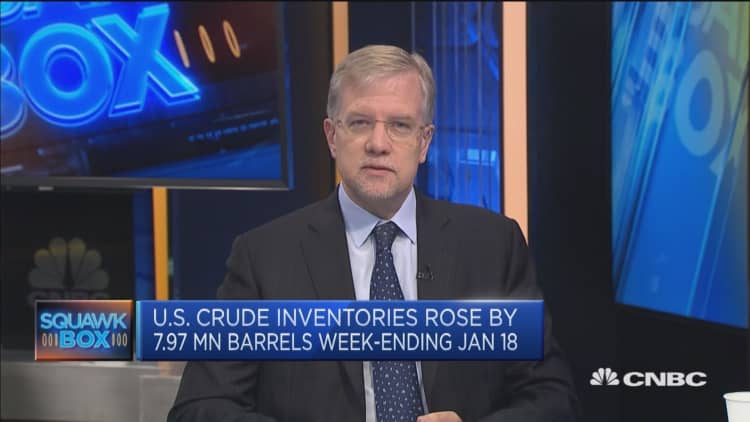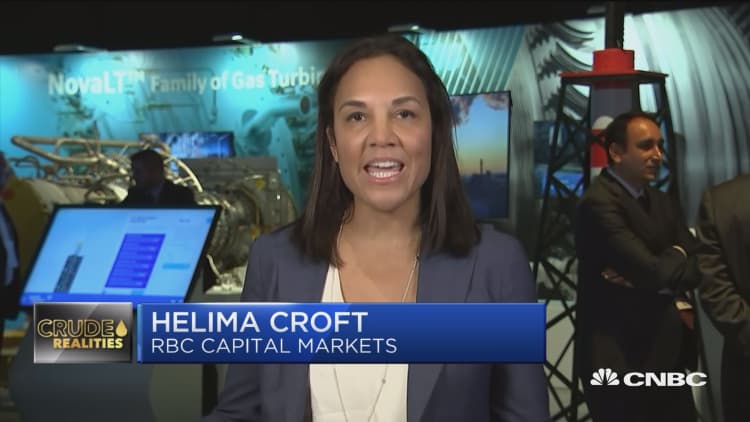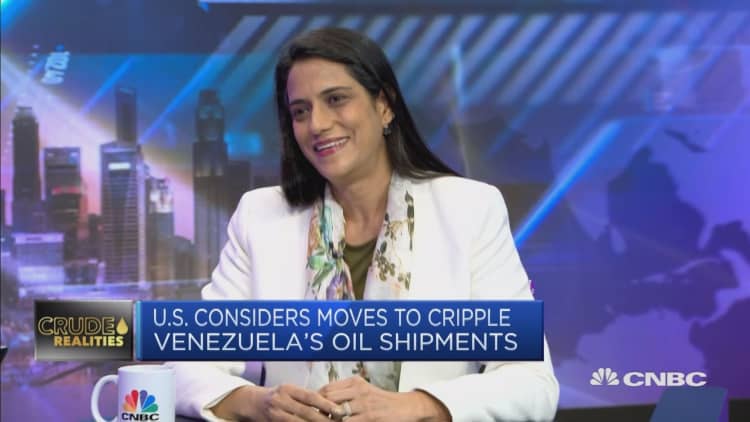
Venezuela's instability risks plunging the world back into a Cold War-style political stalemate, according to a top economist at Deutsche Bank.
The Latin American country has been suffering an economic and societal collapse, brought on by skyrocketing hyperinflation, shortages of food and medicines, as well as looting and violence. It is estimated by the United Nations (UN) that 5,000 Venezuelans are leaving the country each day.
Washington has called for the removal of current president Nicolas Maduro and has backed the current opposition leader, Juan Guaido, who has declared himself interim president. In an apparent suggestion of U.S. military action, President Trump has said "all options are on the table."
The U.S. government position has been backed by a number of major western nations who have said they would recognize Guaido's claim as the new leader if Maduro refused to hold fresh elections.
China, which has made large investments in the country, has said it "opposes foreign forces from interfering" while Russia, another country with strong Venezuelan connections, said Guaido's assertion of power was a violation of international law.

Speaking to CNBC's Squawk Box Asia Monday, the Chief Economist and Head of Research for Asia Pacific, at Deutsche Bank, Michael Spencer, said, the U.S. could put an active military presence in the western hemisphere for the first time in many years. He said the governments around the world were tying themselves to opposing views on Venezuela's future.
"The risk is that we end up in a protracted stalemate and it begins to look more like an old Cold War style conflict where you have the Chinese and the Russians supporting Maduro and the rest of the world supporting Guaido," he said.
Venezuela's economy is propped up by large oil reserves. It produces an estimated 1.1 million barrels of heavy crude per day — a type of oil often converted to diesel and exported to the U.S. for commercial transport use.
Spencer said U.S. sanctions would be "terribly crippling" for the South American nation and could likely trigger a change in power.
"Venezuela can keep bartering oil with the Chinese but if they can't export anywhere else it is the kind of thing that you think would be enough to topple the government," he added.
The Deutsche Bank economist added that the oil money is used to control the Venezuelan military and any disruption to that could, conversely, bring a quick end to Maduro's reign.

To portray a strong alignment with the military Maduro's government released television images Sunday, showing him jogging with soldiers and watching military live-round exercises.
In a translation provided by Reuters, Maduro later said that the armed forces stood ready to defend against any "coup" backed by the U.S.
"Nobody respects the weak, cowards, traitors. In this world what's respected is the brave, courageous, power," he said before adding "nobody should even think of stepping on this sacred soil."
The price of oil has so far been little affected by the Venezuelan instability. International Brent crude oil futures were at $60.70 a barrel at 12:30 p.m. GMT, down 94 cents, or 1.56 percent while U.S. crude oil futures were at $52.75 per barrel, down 94 cents, or 1.77 percent, from their last settlement.
Speaking to CNBC's Squawk Box Asia Monday Vandana Hari, founder and CEO of Vanda Insights, said that the prospect that Venezuelan oil production could completely disappear was not yet a concern.
"I don't think the time has come yet for the market to price in that eventuality but perhaps that is something that could cause a premium in crude," Hari said.


